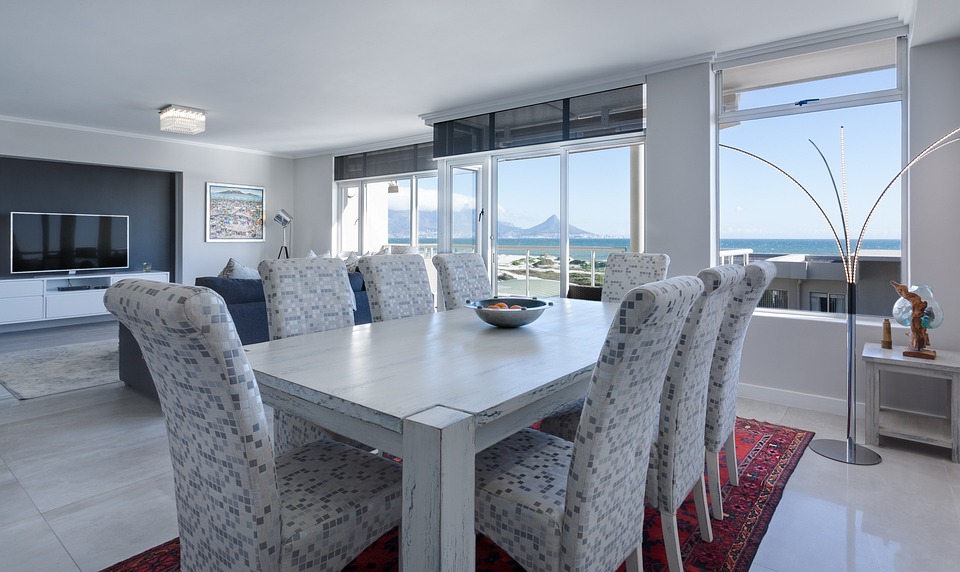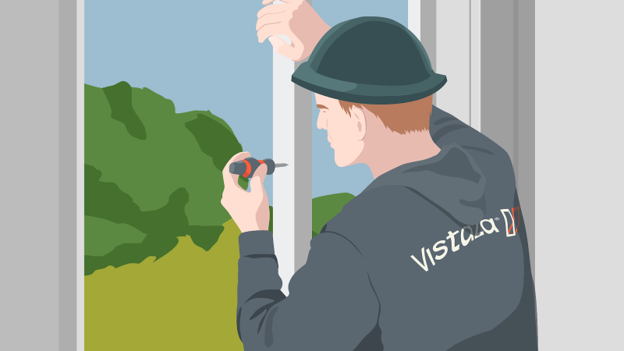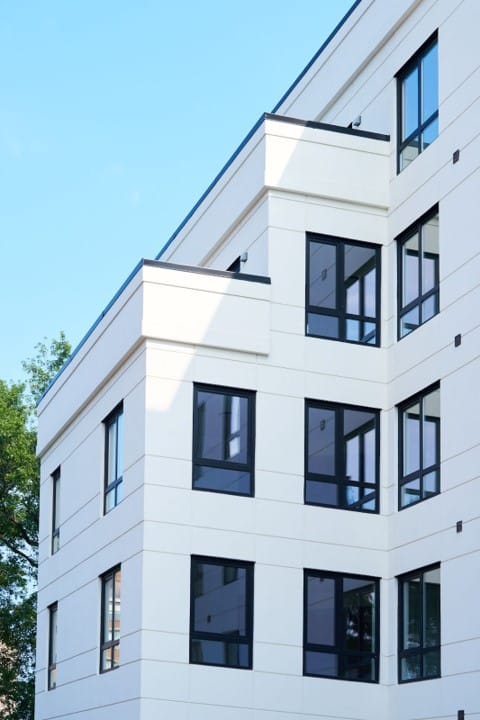Are you tired of the constant noise intrusion through your windows? Whether you’re dealing with external noise from traffic or noisy neighbors, or you simply want to create a peaceful and quiet environment in your home or office, soundproof windows are the solution you’ve been looking for.
In this comprehensive guide, we will explore the benefits of soundproof windows, the different types available, and provide you with expert guidelines to help you soundproof your windows effectively. So let’s dive in and discover how you can enjoy the ultimate soundproofing experience!
1. Introduction to Soundproof Windows
The Importance of Soundproofing Windows
When it comes to creating a peaceful and comfortable environment, soundproofing is essential. Excessive noise from external sources, such as traffic or neighboring buildings, can significantly impact our well-being, productivity, and overall quality of life.
By addressing the issue of noise intrusion, we can create a serene and tranquil space where we can relax, concentrate, and enjoy uninterrupted activities.
Understanding Acoustic Design
Architectural acoustics play a crucial role in designing spaces that offer optimal sound quality and control.
While many people may not consider acoustics during the initial design phase, it is important to address soundproofing early on to minimize the need for post-construction soundproofing solutions.
By incorporating acoustic design principles from the outset, architects can create spaces that not only look aesthetically pleasing but also provide exceptional sound experiences.
2. Types of Soundproof Windows

Single Pane vs. Double Pane Windows
One of the first decisions to make when considering soundproof windows is whether to opt for single-pane or double-pane windows. Standard single-pane windows are the most basic and offer minimal sound insulation.
On the other hand, double pane windows, also known as insulated glass units (IGUs), consist of two layers of glass with an air or gas-filled space in between. This additional layer provides improved insulation and reduces noise transmission.
Laminated Glass vs. Dual Pane Glass
While dual pane windows offer some level of soundproofing, laminated glass is a superior option for achieving optimal noise reduction.
Laminated glass consists of two or more layers of glass bonded together with a layer of polyvinyl butyral (PVB) between them.
This construction effectively dampens sound vibrations and significantly reduces noise transmission.
Choosing the Right Window Frame
In addition to selecting the appropriate glass type, the choice of window frame material can also impact soundproofing effectiveness. Different materials have varying levels of acoustic insulation properties.
For example, vinyl frames are known for their excellent soundproofing capabilities as they absorb sound vibrations better than aluminum frames. Wood frames are also a popular choice as they offer natural soundproofing qualities.
3. Soundproofing Techniques for Windows
Absorption: The Key to Noise Reduction
One of the most important aspects of soundproofing windows is addressing sound absorption. Absorbent materials play a crucial role in dampening sound reflections within a room, reducing echoes, and minimizing reverberation.
Acoustic panels, acoustic foam, soundproofing insulation, and acoustic cotton are commonly used materials to absorb sound. By strategically placing these materials in the room, you can significantly improve sound quality and clarity.
Reflection: Minimizing Echoes and Reverberation
Sound reflections can create echoes and reverberations, leading to a less desirable acoustic environment. To minimize sound reflections, it is essential to incorporate soundproofing techniques that limit or prevent the reflection of sound waves.
Installing acoustic panels or other absorbent materials in the path of soundwaves can effectively reduce reflection and improve sound quality in spaces such as conference rooms, auditoriums, and music studios.
Diffusion: Achieving Balanced Sound Distribution
Sound diffusion is another critical aspect of soundproofing windows. It involves controlling the direction and distribution of sound waves to ensure even coverage of high and low-frequency sounds throughout a space.
Diffusion materials, such as perforated wood panels, are designed to scatter soundwaves and create a more balanced listening experience.
By incorporating diffusion techniques, you can enhance the overall sound quality and clarity in areas with speaker systems.
4. Incorporating Soundproof Windows in Architectural Plans

Design Development: Integrating Soundproofing Solutions
To achieve optimal soundproofing in a building, it is essential to consider soundproofing solutions during the design development phase.
Collaboration with acoustical consultants can help architects create a sound profile that meets the specific requirements of the space.
Customized wall or ceiling shapes, the use of acoustic panels, and the selection of appropriate materials can all contribute to creating an exceptional listening experience.
Construction Documentation: Specifying Soundproofing Requirements
Including soundproofing specifications in construction, documentation is crucial for ensuring that the intended soundproofing solutions are implemented correctly.
Detailed instructions on the installation of soundproofing materials, such as floating doors, acoustic windows, and soundproof insulation, should be provided.
Additionally, specifying the maximum decibel levels and ideal sound penetration limits can guide engineers and contractors throughout the construction process.
Construction Administration: Ensuring Proper Installation
During the construction phase, regular site visits and inspections are necessary to ensure that soundproofing materials are installed according to specifications.
This is particularly important for specialized soundproofing techniques, such as decoupling drywall from framing or using sound isolation rails.
Collaboration with sound consultants can provide valuable training for contractors and post-construction testing to verify that the building meets soundproofing requirements.
5. Benefits of Soundproof Windows

Noise Reduction for Improved Comfort
The primary benefit of soundproof windows is their ability to significantly reduce external noise intrusion, creating a more peaceful and comfortable living or working environment.
Studies have shown that excess noise can lead to decreased productivity, increased stress levels, and disrupted sleep patterns. By installing soundproof windows, you can enjoy a quieter space and enhance your overall well-being.
Energy Efficiency and Cost Savings
Soundproof windows offer additional benefits beyond noise reduction. The insulation properties of soundproof windows help to minimize heat loss or gain, resulting in improved energy efficiency.
This can lead to lower heating and cooling costs, reducing your environmental impact and saving you money on energy bills. Additionally, soundproofing windows can contribute to the overall energy efficiency rating of a building, making it more attractive to potential buyers or tenants.
UV Protection and Privacy Enhancement
Many soundproof windows feature laminated glass, which provides excellent UV protection by blocking up to 99% of harmful UV radiation. This not only helps to protect your furniture, artwork, and flooring from fading but also reduces the risk of skin damage from prolonged exposure to UV rays.
Additionally, soundproof windows offer enhanced privacy by reducing the transmission of sound from both inside and outside the building, ensuring sensitive conversations and activities remain confidential.
6. Soundproofing Considerations for Specialized Spaces
Residential Buildings: Creating a Tranquil Home Environment
In residential buildings, soundproof windows can make a significant difference in creating a peaceful and tranquil living space.
Whether you live in a bustling urban area or near a busy road, soundproof windows can effectively block out external noise, allowing you to enjoy a restful night’s sleep and a quieter indoor environment. They are particularly beneficial for bedrooms, nurseries, and home offices, where concentration and privacy are crucial.
Commercial Spaces: Enhancing Productivity and Customer Experience
In commercial settings, such as offices, restaurants, and retail stores, soundproof windows can greatly enhance productivity and customer experience. Excessive noise can be a major distraction in open-plan office spaces, leading to decreased concentration and decreased work performance.
By installing soundproof windows, you can create a more focused and productive work environment.
In restaurants, soundproof windows can help maintain a pleasant dining atmosphere by reducing noise from the kitchen or outside traffic. Similarly, in retail stores, soundproof windows can create a calm and inviting shopping experience for customers.
Historical Restorations: Preserving the Charm without Compromising Soundproofing
Preserving the architectural integrity of historical buildings while incorporating modern soundproofing solutions can be a challenge. Soundproof windows offer a practical solution for historical restorations, as they can be added without altering or removing the original windows and glass.
This allows you to maintain the unique charm and character of the building while achieving optimal soundproofing. Soundproof windows also address other common issues in older buildings, such as air infiltration, improving overall comfort and energy efficiency.
7. DIY vs Professional Soundproofing Options

DIY Soundproofing Techniques
If you’re a handy individual looking for a cost-effective soundproofing solution, there are several DIY techniques you can try.
These include adding weatherstripping or draft stoppers around the window frame to reduce air leakage, installing window seals or acoustic caulking to seal any gaps or cracks, and using soundproof curtains or blinds to absorb sound vibrations.
While these techniques can provide some level of noise reduction, they may not offer the same level of effectiveness as professional soundproofing options.
Professional Soundproofing Services
For optimal results and long-term performance, professional soundproofing services are recommended. Companies specializing in soundproofing windows can provide customized solutions tailored to your specific needs.
They have the expertise and knowledge to assess your space, recommend the most suitable soundproofing materials and techniques, and ensure proper installation.
Professional soundproofing services offer a comprehensive approach to soundproofing, addressing all aspects of noise reduction and providing guaranteed results.
Comparing Effectiveness and Cost
When considering DIY vs. professional soundproofing options, it is essential to weigh the effectiveness and cost. DIY techniques may be more affordable initially, but they may not provide the same level of noise reduction and long-term performance as professional solutions.
Professional soundproofing services may require a higher upfront investment but offer superior noise reduction and durability, delivering value for money in the long run. Additionally, professional installations often come with warranties, providing peace of mind and assurance of quality.
8. Frequently Asked Questions about Soundproof Windows
How much noise can soundproof windows block?
Soundproof windows can significantly reduce external noise intrusion, with sound transmission class (STC) ratings ranging from 48 to 57. Standard dual-pane and single-pane windows typically have STC ratings ranging from 26 to 32.
By adding soundproof windows behind the primary windows and increasing the air space between them, you can achieve even higher STC ratings, providing greater noise reduction.
Can soundproof windows reduce energy costs?
Yes, soundproof windows offer insulation properties that can help reduce energy costs. They minimize heat loss or gain, improving the energy efficiency of a building.
By reducing the need for excessive heating or cooling, soundproof windows contribute to lower energy consumption and lower utility bills.
Can soundproof windows be added to existing windows?
Yes, soundproof windows can be easily added to existing windows without the need for extensive modifications. They are designed to match the original window frames and can be installed inside, and behind the existing window. This allows you to preserve the aesthetic integrity of your space while enjoying the benefits of soundproofing.
9. Tips for Maintaining Soundproof Windows
Cleaning and Inspecting the Windows
Regular cleaning and maintenance are essential for keeping your soundproof windows in optimal condition. Use non-abrasive cleaners and soft cloths to clean the glass and frames.
Inspect the windows periodically for any signs of damage, such as cracks or gaps, and address them promptly to ensure continued soundproofing effectiveness.
Addressing Potential Issues
If you encounter any issues with your soundproof windows, such as air leakage or reduced noise reduction, it is important to address them promptly.
Contact the manufacturer or a professional soundproofing service to assess the problem and provide appropriate solutions. Regular maintenance and timely repairs will ensure the long-term performance and effectiveness of your soundproof windows.
Soundproofing windows offers a practical and effective solution for reducing noise intrusion and creating a peaceful living or working environment.
By understanding the principles of soundproofing and incorporating soundproof windows into your architectural plans, you can achieve optimal noise reduction without compromising the aesthetic integrity of your space.
Whether you choose to explore DIY techniques or opt for professional soundproofing services, the benefits of soundproof windows, including improved comfort, energy efficiency, and UV protection, make them a worthwhile investment.
So take control of your acoustic environment and enjoy the ultimate soundproofing experience with soundproof windows!
References:
https://www.soundproofcow.com/soundproofing-101/architects-soundproofing-guide/
https://www.soundproofwindows.com/information-for-architects-acoustical-engineers/
https://www.secondskinaudio.com/soundproofing/soundproof-windows/




